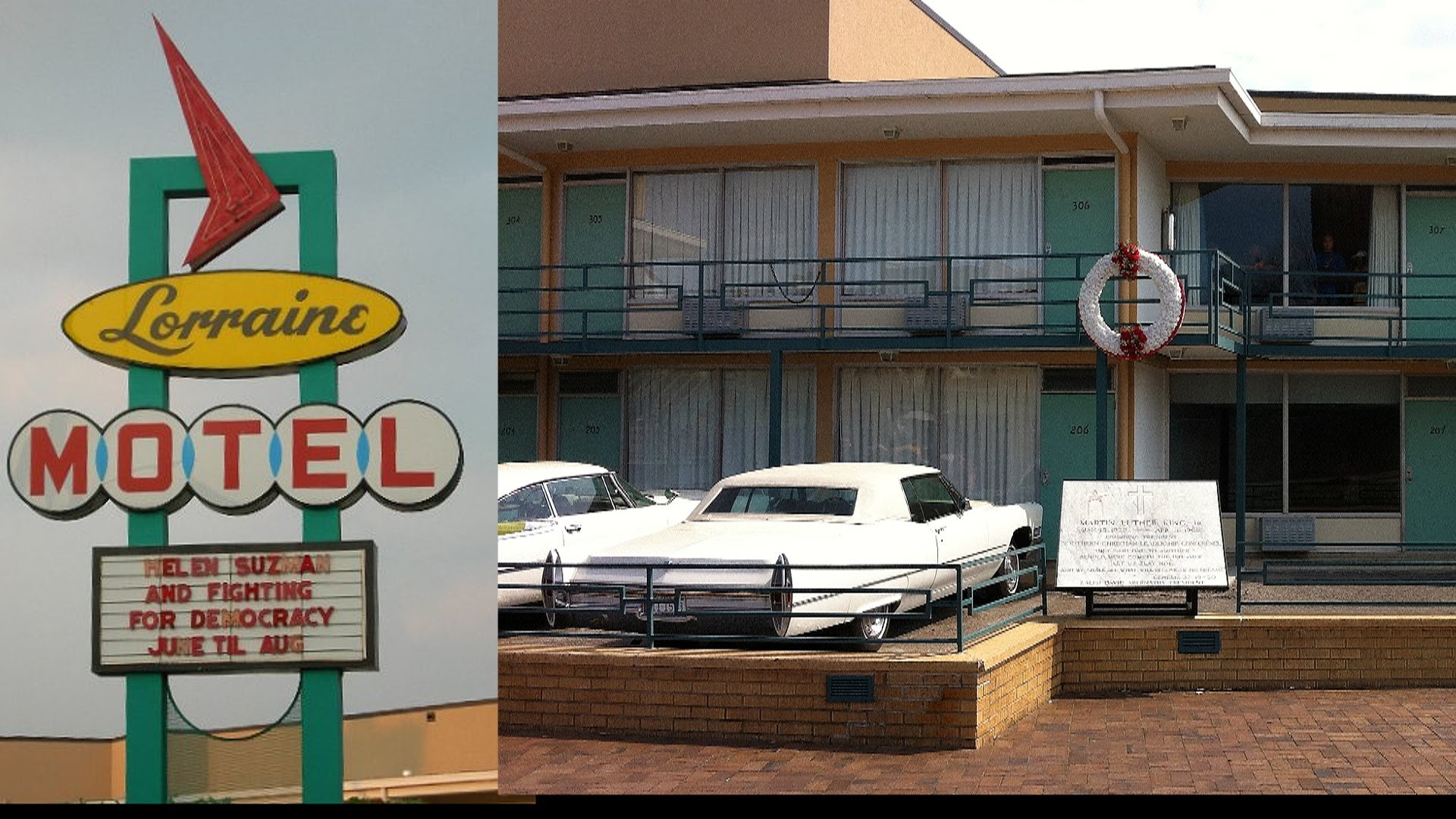OCEANSIDE, California –Flying into Memphis last Tuesday, through purple mists and hovering ghosts, the plane reeling from the clouds and rain, I felt Dr King’s sad spirit floating over the grayish Mississippi River, the verdant magnolia-laden landscape, and the brownish buildings below. The 50th anniversary of the assassination of. at the Lorraine Motel was upon us—the history-altering tragedy happened at that site at 6:01 PM on April 4, 1968.
Dr. King was invited to Memphis by local ministers to help striking sanitation workers, overwhelmingly black, to carry on their walkout against the city for egregious disparities and racist standards in their work conditions. They were demanding a ten-cent raise, actual uniforms, and the right to come in from the heavy Memphis rains and take shelter in the whites-only staff structures.
I was invited by the National Civil Rights Museum at the Lorraine Motel to be one the presenters—an extraordinary honor even after twelve years of association with the institution. Yet this was quite nothing as just being there—immediately below that balcony where King stood to be gunned down—intertwined among some 100,000 people of all colors, creeds, and economic lines. Little black kids were hugged by white middle-agers; old, grizzled black veterans of the Movement embraced their elderly white allies in the ministry and the government.
The men and women of that heralded era that are still here and, though many are crippled by advanced age and physical ailments, their voices rang out with conviction, vitality, and purpose as they chided all of us to seize the moment of MLK’s “Beloved Community.” They formed a grandiloquent oratorical freedom march that moved us, and enthused us, to actually believe that a better America is still on the horizon.
Here was Rev. Jim Lawson, lion of the Movement, who had the led the sanitation workers’ strike and daily marches and who had admonished me years ago concerning what I had written about him: “Don’t mark me as a Gandhian! I am a Christian!”
And there was Congressman John Lewis, who had his skull broken open by Selma, Alabama, police on Bloody Sunday in 1965 and who still walks with a straight back. And here was Jesse Jackson, once so athletic and brash and maddeningly ambitious, walking tentatively and forlornly along that balcony and pausing heavily by the door of Room 306. There was no light left in his eyes; both his voice and strength had abandoned his body.
And there was a brigade of large present-day sanitation trucks, shining and imposing, parked in side streets and protectively keeping the perimeter secure for all of us. How magnificent and ironic, I thought. Black men in sanitation trucks protecting us white folks from danger. I looked up and spoke to one of the drivers towards the end of the day and thanked him. Neither of us had been present that fateful day fifty years ago. The driver responded: “We’re all here now, brother.”
While Al Green sang after the tolling bells at 6:01 PM, we all left singing and knowing that America is still ripe with hope and the spirit of M.L. King. We shall overcome!
Republished from San Diego Jewish World


























